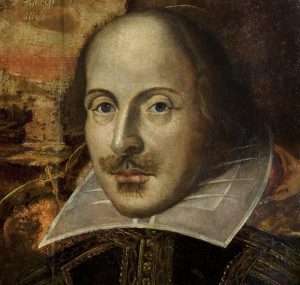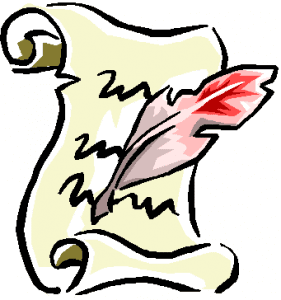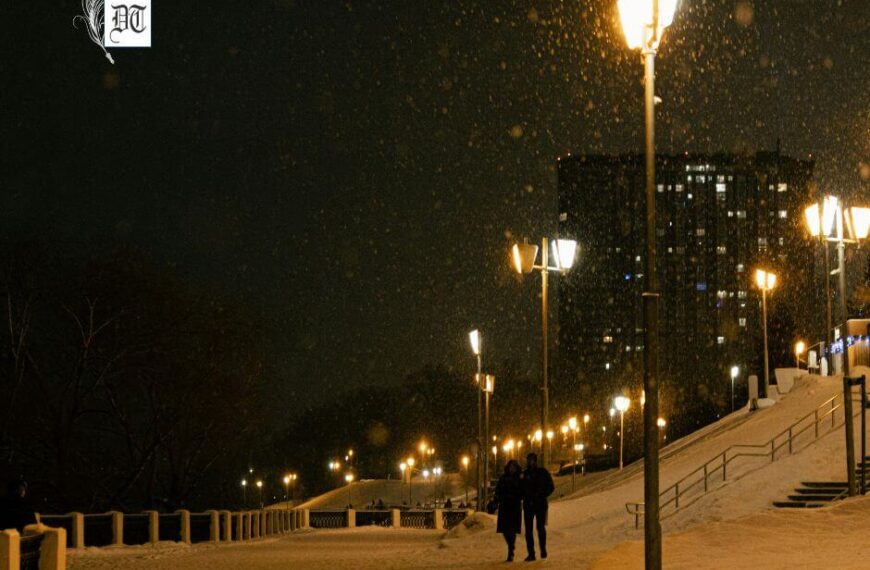Basudeb Chakraborti’s poetry has a remarkable horizontal vastness and a rare vertical depth. His poetry concerns itself with all the essential aspects of life and one feels the imprint of his originality of thought and expression. The riches of experience that he brings to bear invest his poetry with the authenticity of feeling and variety of experience and expression. This collection has some immortal poetry whose rumblings will be heard, later on, opines Dr. Jernail and Prof. Manminder, in the fourth and concluding part of his critique, exclusively for Different Truths.
The poet is still searching out the meaning of the long journey of life, its vicissitudes, but there is no bitterness, no despair, no feeling of helplessness. Only a wondering feeling over the overawing mystery, that of a stoic who has seen enough, felt enough, found enough and yet is satiated to know that it may be so much more that stays behind:
“What is this search I have undertaken for this long life?” [p. 38] and in this life, he has seen enough:
I have enjoyed joyful moments intersected by sorrow
And I have nothing to ask Him and to borrow
The world I live is perfect and tolerable to me
And let Him live gloriously with His uncaring glee.
This carefree attitude towards life is, in fact, the boldness expected from a cultivated consciousness.
The poet does not stop short of bringing into the catchment area of his perceptions the great bards of English literature. ‘Thou shalt last Oh immortal Bard forever’ he emotes, in ‘To Shakespeare’, and ‘To  Keats’, does not fail to mention how pain is an inalienable part of human consciousness [ “fear of the end of happy moments haunts, ”p. 44]. In ‘I’m not Gerontion’ he is invoking the great 20th-century poet, T.S. Eliot, where he seems to assert his religious faith:
Keats’, does not fail to mention how pain is an inalienable part of human consciousness [ “fear of the end of happy moments haunts, ”p. 44]. In ‘I’m not Gerontion’ he is invoking the great 20th-century poet, T.S. Eliot, where he seems to assert his religious faith:
“I’m not Gerontion because religious faith,
To me is a perennial peace and truth”
This one line sets store by the great Indian tradition of hope and faith in the divine, which he asserts soon after; “I am a pagan and I yearn for God’s miracle”, which is pinned on faith in a future which will be better. Gerontion, in his case, does not signify age and decay, but the poet taps on eternal sources of revival and fertility when he refers to dried up rivulets being flooded with waters again and when he feels youthful energy return to him even in his years of decline.
The poet has a deep faith in the presence of God everywhere. This faith is writ large in his poem ‘On My Mystic Belief’ in which he sees God in every incarnation conceivable, he is a meat eater, he is a vegetarian, he is a confirmed Marxist, and he goes to Varanasi also on pilgrimages. The poet’s God is a universal phenomenon, and it underlines his Catholicism.
Even while talking about nature in his poem “An Incessant Rainy Night”, he gravitates to Thomas Hardy and Wordsworth:
In Thomas Hardy, Nature is hostile to us.
To Wordsworth, Nature is benign and she
Does not betray the soul that loves her;
To Tagore, nature is infinite and adorable [p. 48].
Referring to all these greats, he makes his own comment: “Is Nature to mankind our friend or terror? But I love incessant rain with joy and fear”. In fact, it appears, behind every feeling that he experiences, lies embedded a rich treasure of literary readings, and assimilated knowledge, which lights up his canvas whenever the button is pressed.
No doubt nature and love are the running passions which are the shaping influences of his consciousness, yet the poet has a creepy feeling when he finds the dichotomy in the life that is being lived. While musing on the city, in his poem “Musing on my city while in Delhi” [p.51], the poem conjures up a utopian city  which is safe for a smooth walk, and is dirt free. There are people in the city who pull carts, and this reality has been contrasted with the new city which is illuminated to signify the riches of illusory lifestyles. Kolkata has been host to Marxian influences where a communist government was in the saddle for decades under Jyoti Basu. The tenor of life in West Bengal has been coloured by a natural sprinkling of communist thought which was based on the rejection of exploitation of the have-nots by the haves. Here, it appears he is underlining the feeling that some are extravagating on non-essentials, while the vast majority of people are just lavishing on scarcities.
which is safe for a smooth walk, and is dirt free. There are people in the city who pull carts, and this reality has been contrasted with the new city which is illuminated to signify the riches of illusory lifestyles. Kolkata has been host to Marxian influences where a communist government was in the saddle for decades under Jyoti Basu. The tenor of life in West Bengal has been coloured by a natural sprinkling of communist thought which was based on the rejection of exploitation of the have-nots by the haves. Here, it appears he is underlining the feeling that some are extravagating on non-essentials, while the vast majority of people are just lavishing on scarcities.
This is how the poet looks at this social disparity, without getting overtly disturbed:
The city contains too wealth, too poverty
That saddens me for this intensity of disparity…
Some disparity is a need for someone to grow
Minimum requirement for breathing is thus so. [p. 51]
Moving beyond the empirical, the idea of freedom has often been an obsessive passion for the man. Freedom for what? What is salvation? And what is bondage? The poet philosophises on these mystical issues of life in his poem ‘Our Long Cherished Endeavour’. He asserts that dependence is essential to human nature, and a craving for freedom too, both these feelings are our strength, as well as they lead to surrender to the divine and bring us to an even joy of life.
Our strength along with our surrender
To the Divine, we may call it in any order,
Both will bring in our life a quiet shower
For our journey, our lifelong Endeavour. [p. 55].
‘On Time’ is another of his poems in which we encounter the philosopher in the poet. “The present and  the past lives together, and lead the Modern civilization further”, he feels. His valuable observations help the reader in understanding the social structures:
the past lives together, and lead the Modern civilization further”, he feels. His valuable observations help the reader in understanding the social structures:
Tradition and modernity build our future,
The young march and the old disappear
The newborn babe will be present.
The young and the old will be then co-existent.
This is a moving vision of humanity, in which the old is shaken off and the newborn and youthful members are joining in. The procession of life goes on in all its sad and glorious details.
However, the poet makes a very pessimistic suggestion when he says:
“Life, love, beauty and truth all are myths only.
They all die, but they live in our memory.
Time eternal will destroy even that Bodhi tree”
[My Time up Love, p. 69]
Such sweeping statements make one stop and start reflecting on what is simmering in the cauldron of the poet’s mind. Maybe these are all myths, which is a serious issue of debate, the poet asserts a little later that love is permanent. This faith in the permanence of love grants a rare vertical depth to his vision of life:
Man’s love is permanent though lovers may not be.
Other themes that dot this wonderful collection of poems are alienation, loneliness, modern anti-culture [the mall culture], and the incumbent computer culture. Albatross is an image which appears to possess his consciousness. Urmila is a symbol of an uneven treatment of the feminine sacrifice over the ages. However, the poet makes a final statement on how we look at our present which is invested with deep meaning about the human propensity to live in future and kill our present:
‘We see the present through the unseen future,
Almighty wants us not to worry for hereafter’
“When Old How I Would Be”, p. 87]
On the basis of foregoing discussion, it can be safely concluded that Chakraborti’s poetry has a remarkable horizontal vastness and a rare vertical depth. His poetry concerns itself with all the essential aspects of life and one feels the imprint of his originality of thought and expression. The riches of experience that he brings to bear invest his poetry with the authenticity of feeling and variety of experience and expression. This collection has some immortal poetry whose rumblings will be heard later on. A distinguishing feature of his poetry is his assimilative powers which provide him wings to soar high in the realms of imagination, yet keep an eagle eye over the ground as well. I extend a hearty welcome to this collection of poems which marks a definite movement forward towards post-post-modernism and bears the imprint of India, its love, its faith, and its faith in human love and compassion.
(Concluded)
©Dr. Jernail S. Anand and Prof. Manminder Singh Anand
Photos from the Internet
 Co-author: Prof. Manminder Singh Anand is Assistant Prof., Dept. of English, DAV College, Sector 10, Chandigarh. He has authored ten books and published in national and international journals. Rhetorical Expressions is one of his most remarkable books.
Co-author: Prof. Manminder Singh Anand is Assistant Prof., Dept. of English, DAV College, Sector 10, Chandigarh. He has authored ten books and published in national and international journals. Rhetorical Expressions is one of his most remarkable books.
#Critism #Poem #PostModernism #Kolkata #Shakespeare #DifferentTruths





 By
By

 By
By
 By
By